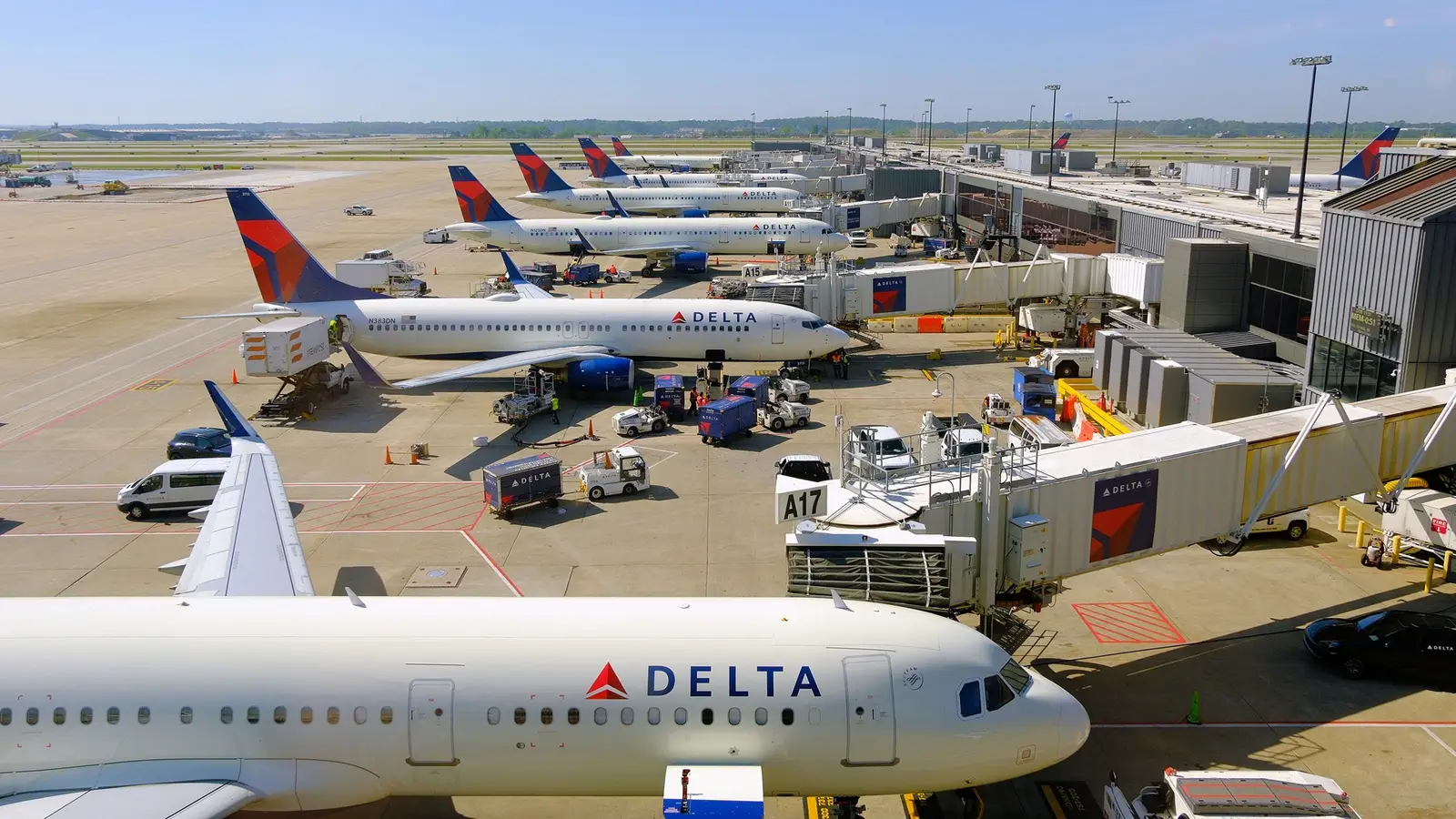
The United States government has directed Delta Air Lines and Aeromexico to end their joint venture by January 1, 2026. This decision will end the nine-year agreement, which had allowed the two airlines to coordinate schedules, pricing, and capacity for flights between the US and Mexico.
The transportation department stated the joint venture must end due to ongoing anticompetitive effects in the US-Mexico City markets, which it said give Delta Air Lines and Aeromexico an unfair advantage.
Delta Unhappy With Termination Of Joint Venture
On September 15, 2025, the United States Department of Transportation (DOT) issued a final order to dismantle the Delta–Aeromexico joint cooperation agreement, giving the airlines three and a half months to wind it down. According to a report by Reuters, Delta Air Lines and Aeromexico operate about 60% of passenger flights between Mexico City Airport and the United States.
As the fourth-largest international gateway to and from the US, the airport plays a key role in cross-border travel. The US DOT said the joint venture is “anticompetitive” and gives the two airlines an unfair advantage. In response, both Delta and Aeromexico expressed disappointment with the US government’s decision to terminate the partnership. It is worth noting that Delta Air Lines has a 20% equity stake in Aeromexico. Nevertheless, the DOT reportedly said that it did not require Delta Air Lines to sell its minority stake in the Mexican carrier. In a statement, Delta Air Lines said:
“We are disappointed that the Department of Transportation has chosen to terminate its approval of the strategic and pro-competitive partnership between Delta and Aeromexico, a decision that will cause significant harm to US jobs, communities and consumers traveling between the US and Mexico. We are reviewing the Department’s order and considering next steps.”
What Led To The Decision
The US-Mexico Open Skies Agreement was signed in 2015 with the objective of liberalizing air travel between the two countries, allowing more airlines to operate routes, and increasing market access for both passenger and cargo services.
On the back of that, the US government granted Delta Air Lines and Aeromexico antitrust immunity (ATI) to operate their cross-border services. The two carriers were granted the right in 2016 to run their US-Mexico operations within the framework of a joint venture, allowing them to plan and price flights jointly. Earlier this year, amid an ongoing but largely unrelated trade dispute between the US and Mexico, the DOT warned it might revoke antitrust immunity (ATI).
The department pointed to restrictive and “possibly discriminatory” policies by the Mexican government that it said undermine the principles of the Open Skies agreement. Among the concerns were reductions in permitted aircraft movements at Mexico City International Airport (MEX) as well as slot allocation practices the DOT described as restrictive and lacking transparency, which limit competition and access for US airlines.
Such Measures Could Reach European Airlines
Slot allocation at European airports is often complex. London Heathrow Airport (LHR), for example, is one of the most difficult hubs in the world for airlines to secure slots. Other airports, such as Dublin (DUB), impose caps that further restrict the availability of landing slots.
According to the Reuters report, the Trump administration had warned it could take action against European countries over airport slot restrictions, a point now being raised in connection with the termination of the Delta–Aeromexico joint venture.
The Trump administration tariffs created significant uncertainty for US airlines and worldwide by disrupting both costs and planning. Higher tariffs on aluminum, steel, and aircraft parts increased operating expenses, while retaliatory tariffs abroad threatened aircraft supply and delivery schedules, particularly from Boeing. Airlines also faced fluctuating demand on international routes due to trade tensions.



